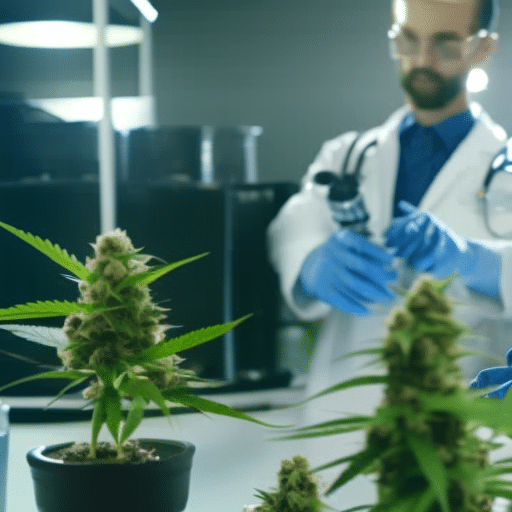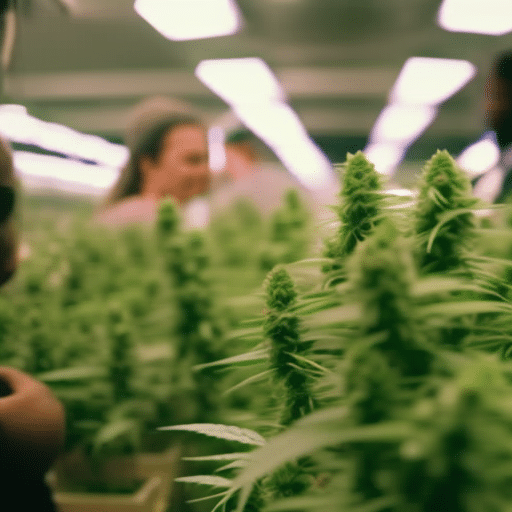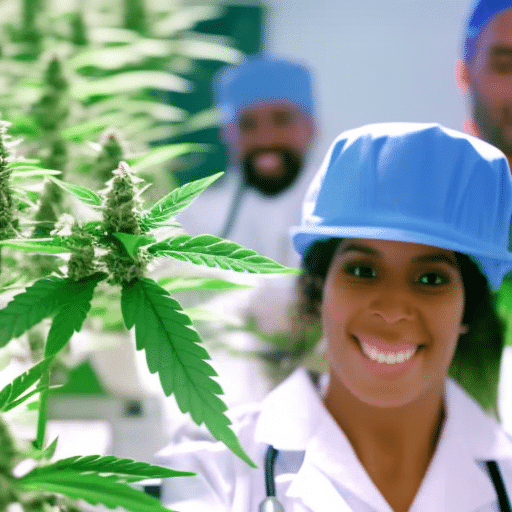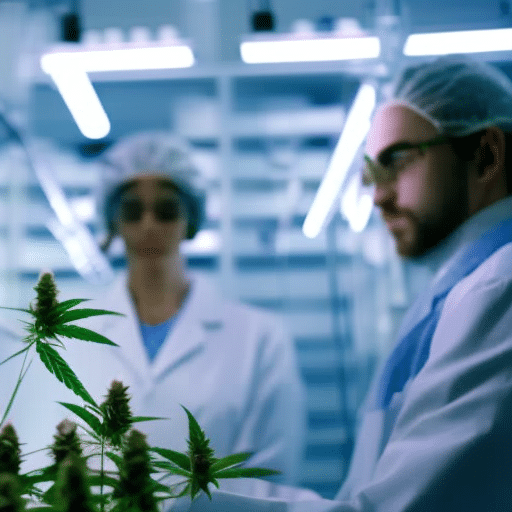Delaware has experienced a significant transformation with the introduction of legalized medical cannabis, a decision that has proven beneficial across numerous aspects. While the discourse surrounding this topic has been fervent, the evidence supporting the advantages of this legalization is compelling. The impact extends far beyond the relief of symptoms; it fundamentally improves the well-being of the state’s residents.
Table of Contents
Exploring the nine definitive benefits that have materialized in Delaware reveals the critical importance of medical cannabis as not only a wise choice but a necessary one for the state’s progression.
In this examination, we delve into the substantial economic growth spurred by the medical cannabis industry, the critical pain management options it provides to patients, and the overall enhancement of life quality it offers. The narrative here is not centered on recreational use but on the crucial medical applications that underscore the need for widespread acceptance and support of medical cannabis in Delaware.
Enhanced Patient Access

Accessibility has significantly improved for you, the patient, since Delaware legalized medical cannabis, streamlining the process of obtaining necessary treatments. With this advancement, patient education has become a focal point, ensuring you’re well-informed about the benefits and potential risks of medical cannabis.
This proactive approach aims to reduce access barriers, empowering you to make more informed decisions regarding your health care.
Evidence suggests that the legalization hasn’t only facilitated easier access but also heightened the quality of information provided to you. By breaking down previous access barriers such as lack of understanding and misinformation, you now have the opportunity to engage in comprehensive discussions with healthcare providers.
This enhances your ability to utilize medical cannabis effectively and responsibly in your treatment plan.
Quality Control Standards

You’ll find that legalized medical cannabis in Delaware is subject to stringent quality control standards, ensuring product purity. These regulations mandate that each product is free from contaminants and consistent in THC and CBD content.
This framework protects you by guaranteeing that the medicine you rely on meets high safety and efficacy criteria.
Product Purity Assurance
As you consider the advantages of Delaware’s medical cannabis program, bear in mind that legalized status brings about stringent quality control standards, ensuring product purity and safety for consumers.
The following list highlights the critical aspects of product purity assurance:
-
Mandatory Product Testing: All medical cannabis products undergo rigorous testing for contaminants such as pesticides, mold, and other harmful substances.
-
Consistent Potency Levels: Laboratories verify that the THC and CBD levels are consistent with what’s stated on the packaging.
-
Safety Protocols Compliance: Cultivators and manufacturers must adhere to strict safety protocols to prevent contamination during the growing, harvesting, and production stages.
-
Regular Inspections: State-regulated inspections ensure that facilities maintain high standards of cleanliness and proper handling of products.
Consistent Dosage Regulation
Every patient using Delaware’s medical cannabis program can trust that their medication contains a precisely regulated dosage, thanks to the state’s comprehensive quality control standards. Dosage precision is critical when it comes to medical cannabis, as it ensures the effectiveness of the treatment while minimizing the potential for adverse effects. Delaware’s regulatory framework mandates consistent potency levels across all products, which is paramount for patients who rely on a specific dosage for therapeutic outcomes.
| Quality Control Aspect | Impact on Patients |
|---|---|
| Dosage Precision | Ensures consistent treatment |
| Administration Methods | Facilitates appropriate use |
| Regulatory Compliance | Guarantees product reliability |
Through these measures, patients can confidently manage their conditions using various administration methods, knowing that the state upholds the highest standards for medical cannabis products.
Economic Growth Boost

You’ll notice that the legalization of medical cannabis in Delaware has catalyzed economic expansion in several key areas.
It has directly led to job creation, from cultivation to retail, providing new employment opportunities for residents.
Furthermore, increased tax revenues from cannabis sales have bolstered state coffers, allowing for reinvestment in local communities and infrastructure.
Job Creation
Legalizing medical cannabis in Delaware has led to the creation of hundreds of jobs, directly boosting the state’s economic growth. This shift hasn’t only stimulated the market but also encouraged workforce diversity. Let’s break down the impact:
-
New Retail Opportunities: Dispensaries have opened their doors, requiring a range of staff from budtenders to managers.
-
Cultivation and Production Jobs: Cultivation centers need botanists, technicians, and security personnel.
-
Ancillary Businesses: Legalization has spurred growth in related sectors such as legal, marketing, and financial services.
-
State and Local Government: Regulatory roles have emerged to oversee compliance and licensing within the industry.
These developments are a testament to how legalizing medical cannabis can generate significant economic benefits for Delaware.
Tax Revenue Increase
Delaware’s legalization of medical cannabis has not only created jobs but also significantly bolstered state revenues through taxation, directly enhancing economic growth. The revenue generated contributes to the state’s budget, with meticulous revenue management ensuring that funds are allocated effectively. Tax allocation is a critical component of this financial boost, as it determines the direct impact on community projects and state-run programs.
Here’s a brief overview of the tax revenue increase from medical cannabis in Delaware:
| Year | Tax Revenue Generated |
|---|---|
| 2019 | $3.6 million |
| 2020 | $5.2 million |
| 2021 | $7.4 million |
| 2022 | $9.1 million |
| 2023 | Projected $11 million |
These figures illustrate a clear upward trend, showcasing how legalized medical cannabis is a viable contributor to Delaware’s economy.
Local Businesses Strengthened
Beyond increasing state revenue, legalizing medical cannabis has also bolstered numerous local businesses, further propelling Delaware’s economic growth. This has been achieved through:
-
Job Creation: New dispensaries and cultivation centers have generated employment, reducing local joblessness.
-
Ancillary Services: Businesses such as legal, accounting, and security services have expanded to support the cannabis industry.
-
Community Engagement: Local events and partnerships have flourished, fostering a sense of community and shared economic success.
-
Entrepreneurial Innovation: A legal framework has spurred innovation, with entrepreneurs developing new products and services related to medical cannabis.
These elements collectively contribute to a robust economic environment, underpinned by a surge in community engagement and entrepreneurial innovation within Delaware’s local economies.
Crime Reduction Impact

You’ll notice a significant decrease in drug-related offenses since Delaware legalized medical cannabis, illustrating one of its most compelling advantages. This shift not only underscores a direct benefit for public safety but also reflects the alleviation of enforcement challenges that have long burdened the state’s legal system.
By redirecting resources previously tied to pursuing low-level cannabis offenses, law enforcement can now focus on more serious crimes, potentially driving down overall crime rates. Objective analysis of the available data supports the correlation between legalization and reduced law enforcement encounters for cannabis-related activities.
This outcome is a testament to the potential of legal frameworks to transform societal issues by tackling root causes rather than symptoms, thereby enhancing community well-being and optimizing the use of public resources.
Regulatory Oversight Benefits

You gain assurance in product safety and quality as Delaware’s medical cannabis industry operates under stringent regulatory oversight. This framework ensures that:
-
Licensed Facilities: Only state-authorized establishments are permitted to cultivate, process, and dispense medical cannabis, ensuring a controlled and safe environment.
-
Product Testing: Cannabis products undergo rigorous testing for contaminants and potency, minimizing health risks associated with unregulated products.
-
Regulatory Training: Employees receive mandatory training on compliance and safety, promoting knowledgeable handling and informed consumer interactions.
-
Compliance Monitoring: Regular inspections and audits are conducted by regulatory bodies to enforce adherence to laws and regulations, mitigating risks of non-compliance.
This analytical approach to oversight provides a systematic structure that safeguards patient health while fostering a responsible and sustainable medical cannabis industry in Delaware.
Reduced Opioid Dependency

One of the most impactful benefits of Delaware’s medical cannabis legalization is your potential to lessen reliance on opioids for pain management. Studies have demonstrated that states with legalized medical cannabis see a reduction in opioid prescriptions, signaling a promising trend in opioid alternatives.
This shift not only offers you a safer option for managing chronic pain but also contributes to combating the opioid epidemic by providing a viable addiction treatment pathway.
Employment Opportunities

Beyond the health benefits, legalized medical cannabis in Delaware opens up a wealth of employment opportunities for you in the burgeoning industry. The sector’s growth isn’t merely about creating jobs but also about fostering workforce diversity and offering specialized training programs.
Here’s how you can picture the evolving job landscape:
-
Cultivation and Harvesting Positions: Roles in growing and processing plants.
-
Retail and Dispensary Jobs: Opportunities in customer service and sales.
-
Quality Assurance and Lab Technicians: Ensuring product safety and compliance.
-
Administration and Management: Overseeing operations and staff.
These positions contribute to a robust industry that values diverse skill sets and promotes comprehensive training programs to maintain high standards. As the market matures, your chance to be part of a progressive field grows.
Increased Tax Revenue

Delaware’s medical cannabis legalization has led to a significant boost in tax revenue, directly benefiting state programs and infrastructure. The market dynamics of legalized medical cannabis encompass a broad spectrum of products and services, each contributing to the state’s financial health. Regulatory challenges, while present, are navigated with stringent oversight, ensuring that tax benefits are maximized without compromising public safety or market integrity.
| Aspect | Impact on Tax Revenue |
|---|---|
| Market Expansion | Increases revenue through broader sales. |
| Regulatory Oversight | Ensures taxes are properly collected. |
| State Programs | Direct beneficiary of additional funds. |
Your understanding of these components is crucial. They represent the gears that turn the wheel of economic benefit derived from medical cannabis, translating legislative change into tangible fiscal progress.
Medical Research Advancements

You’ll find that numerous medical research advancements have been propelled by the legalization of medical cannabis in Delaware. This shift in policy has opened doors for scientists to explore the plant’s potential in various therapeutic applications, leading to a more profound understanding of its benefits and risks.
Here’s a snapshot of how legalization has fostered cannabinoid research:
-
Expanded access to research-grade cannabis for clinical studies.
-
Increased funding and grants for investigating cannabis’s medical properties.
-
The discovery of novel cannabinoids with potential therapeutic benefits.
-
Enhanced understanding of the endocannabinoid system and its role in disease.
These points indicate a maturing landscape for medical research, where evidence-based analysis is paving the way for innovative treatments and a deeper grasp of how cannabis interacts with the human body.
Frequently Asked Questions
How Does Delaware Address Concerns Regarding the Potential for Increased Recreational Use Among Teenagers Following the Legalization of Medical Cannabis?
You’ll find Delaware implements teen prevention strategies and adolescent education programs to mitigate increased teenage recreational use concerns following medical cannabis legalization, ensuring an analytical, evidence-based approach to this potential issue.
Are There Any Specific Legal Protections for Medical Cannabis Patients Against Workplace Discrimination in Delaware?
Isn’t it crucial to know your rights? In Delaware, legal protections exist to shield medical cannabis patients from workplace discrimination, ensuring workplace policies align with state laws to prevent unjust discrimination cases.
How Is Delaware Ensuring That Medical Cannabis Is Accessible to Low-Income Patients Who Might Not Afford It?
You’ll find Delaware offers application assistance and evaluates patient eligibility to ensure low-income individuals can access medical cannabis, making it more equitable for those who might otherwise struggle with the costs.
What Measures Are in Place in Delaware to Prevent the Monopolization of the Medical Cannabis Industry by a Few Large Corporations?
Variety’s the spice of life, and in Delaware, market regulation and license caps ensure you’re not seeing a cannabis monopoly—diversifying ownership to foster competition and keep the industry accessible for different players.
Does Delaware Offer Any Education or Training Programs for Physicians Regarding the Prescription and Management of Medical Cannabis Treatment?
Yes, you’ll find Delaware provides physician certification programs that cover treatment protocols, ensuring doctors are equipped with evidence-based knowledge to prescribe and manage medical cannabis treatments effectively and responsibly.
Conclusion
In Delaware, the legalization of medical cannabis has unfurled a host of advantages. With this legislative progress, patients now enjoy improved accessibility to treatments, while stringent quality control measures ensure product safety. The economic landscape is flourishing, too, with the emergence of new jobs and increased tax revenue bolstering the state’s finances.
Moreover, this green revolution has contributed to a decline in opioid dependence, showcasing cannabis as a potential alternative for pain management. Crime rates have also seen a downturn as regulated dispensaries undercut illicit markets. At the heart of these changes lies a commitment to evidence-based policies and rigorous oversight, ensuring that the benefits of medical cannabis are maximized for all.
The foundation for future medical breakthroughs is being laid as well, with research into cannabis’s therapeutic properties gaining momentum. This commitment to scientific discovery is seeding hope for novel treatments that may emerge from Delaware’s proactive stance on medical cannabis. The state’s journey with medical cannabis isn’t just a hopeful narrative but a reality grounded in data-driven success.

